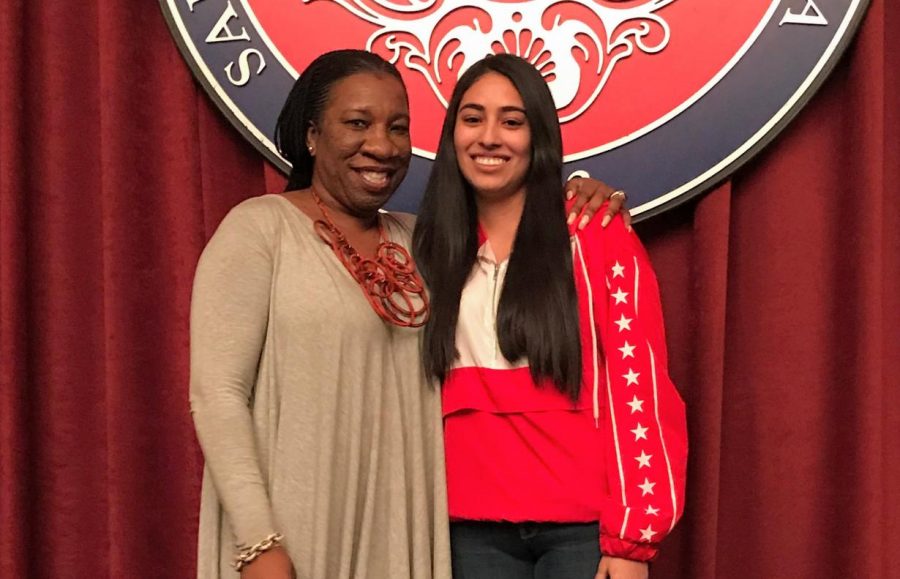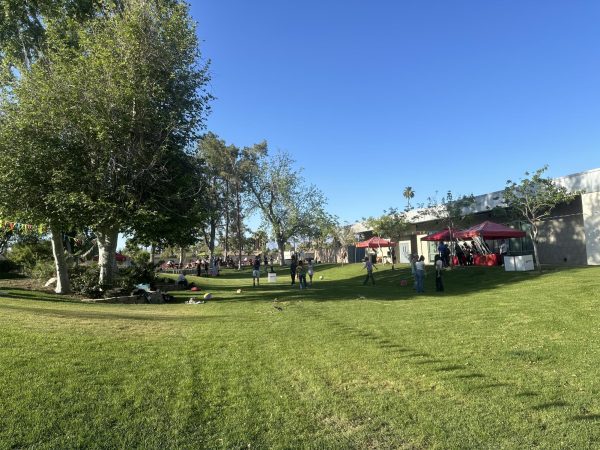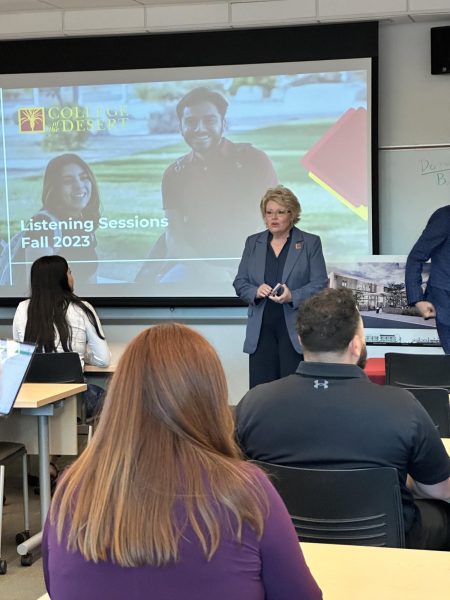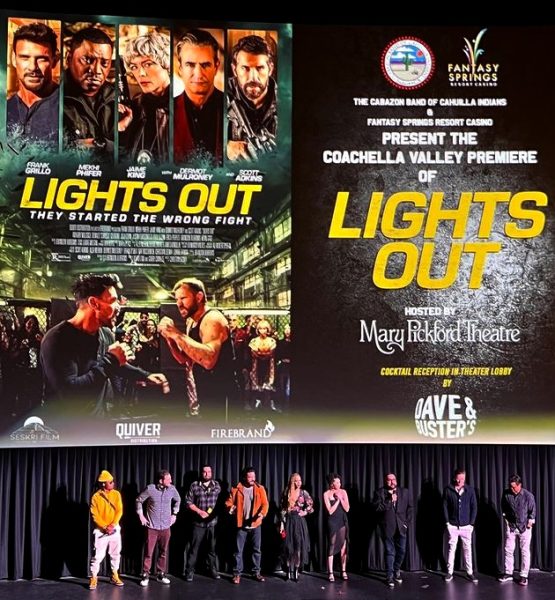An update on sexual harassment in 2020
Tarana Burke (left) founder of #metoo movement and Amaray Alvarez.
March 20, 2020
Over the past 10 years, there has been a shift in our society surrounding how sexual harassment and assault are addressed and handled.
Here in the United States, we have seen new policies put in place, more accountability and the rise of the #MeToo movement headed by Tarana Burke.
Burke, who I had the pleasure of hearing speak, started the #MeToo movement in 2006 to raise awareness and help survivors, particularly women of color and women from low-income backgrounds. She spoke about how her grass-roots organization was thrown into the spotlight when people, mostly women, around the world began using her hashtag to share their stories and let others know they are not alone.
While recent events have helped women and men affected by sexual harassment stay hopeful, I believe there is still work to be done.
According to The National Sexual Violence Resource Center, one in five women and one in 71 men will be raped at some point in their lives.
For us as students, the sad reality is that many of these assaults happen during college. The same study reported that one in five women and one in 16 men are sexually assaulted while in college.
But one of the main groups helping address sexual harassment and assault is the #MeToo movement. This movement sparked change and inspired women to reclaim their stories of abuse.
The New York Times published the first sexual misconduct allegation against Harvey Weinstein on October 5, 2017. After the first acquisition, several other women spoke up against him with similar accounts using the #MeToo hashtag.
On May 25, 2018, Weinstein was officially charged in New York with rape, criminal sex act, sex abuse and sexual misconduct for incidents involving two separate women.
It took two years, but Weinstein was finally sentenced on March 11, 2020, to 23 years in prison, a celebratory moment for his survivors and victims in general.
Besides Weinstein’s sentence, the conversation on sexual harassment and assault has allowed other celebrities and people of power to be held accountable.
Bill Cosby, who was once referred to as “America’s Dad,” was sentenced in 2018 to three to ten years in prison for drugging and assaulting Andrea Constand, a small sentence, but necessary victory.
The conversation has also led to the recognition that men can be victims of sexual harassment too.
In 2018 actor Terry Crews came forward about Hollywood executive Adam Venit who groped him inappropriately at a party.
Crews bravely appeared before the Senate Judiciary Committee to back new laws for sexual assault victims, but his announcement led to support from women and backlash from men.
Several of his male colleagues and celebrities mocked Crews for being assaulted, something that should not be happening in our current climate.
It is important that at this time we come together and believe those who have been involved in sexual misconduct situations. It is a sensitive time and many feel like men are being targeted.
However, society is only trying to undo years of toxic masculinity practices and help educate the next generation.
If you, or someone that you know, have been a victim of sexual harassment or assault, The Rape, Abuse & Incest National Network (RAINN) has a hotline and tools available to help.
The hotline number is 800-656-4673 or you can visit their website at www.rainn.org.











